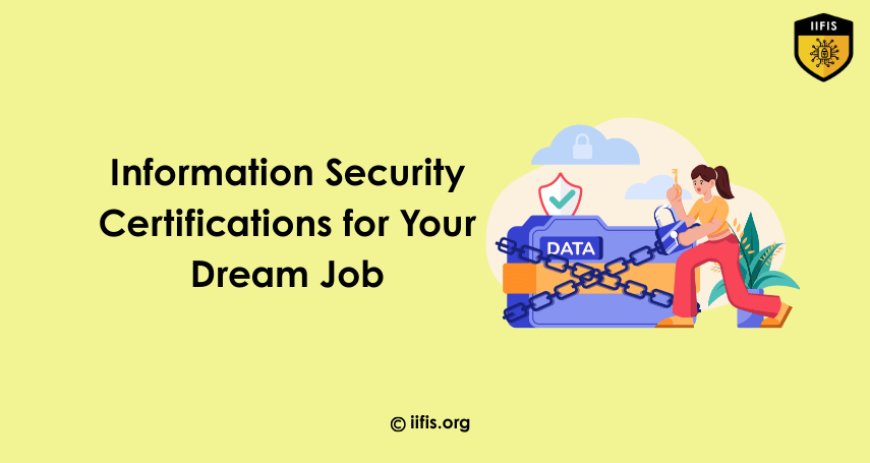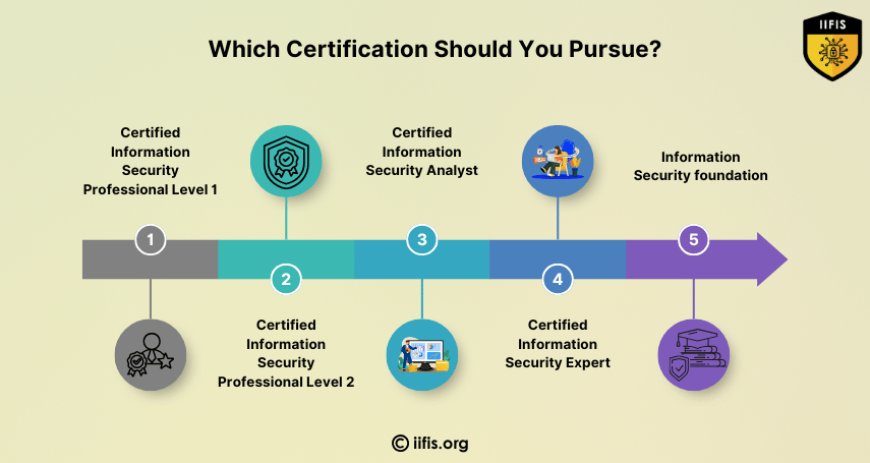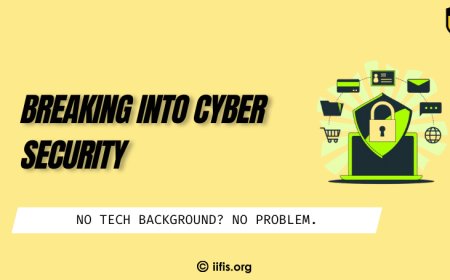Information Security Certifications for Your Dream Job
Advance your career in cybersecurity with top information security certifications. Showcase your skills, gain recognition, and secure your dream job

As an Information Security expert, I can say that Information Security Certifications are critical for anyone aiming to excel in cybersecurity. They not only validate technical skills but also demonstrate a commitment to industry best practices. In a competitive job market, the right certifications can be the difference between standing out and blending in.
Landing Your Dream Job: The Power of InfoSec Certifications
The need for information security professionals is higher than ever. With cyberattacks and data breaches becoming more advanced, companies want certified experts to protect their digital systems.
An Information Security Certification isn’t just a piece of paper—it shows that you have the skills and knowledge to handle real security problems. Certifications like CISSP, CEH, and CompTIA Security+ are recognized worldwide, helping you qualify for jobs in cybersecurity, risk management, and IT security.
Having a certification on your resume shows employers that you’re serious about your career, making you a strong candidate in the cybersecurity job market.
Which Certification Should You Pursue? A Career Path Guide
Choosing the right certification depends on your career goals, experience level, and areas of interest. Here’s a quick guide to help you decide:
For Beginners:
-
CompTIA Security+: Great for entry-level roles, covering fundamentals like network security, cryptography, and identity management.
-
Certified Cybersecurity Entry-Level Technician (CCET): Ideal for those new to the field, focusing on basic cybersecurity concepts.
For Intermediate Professionals:
-
Certified Ethical Hacker (CEH): Perfect for those interested in penetration testing and ethical hacking.
-
Certified Information Systems Auditor (CISA): Best for individuals aiming for roles in IT auditing and compliance.
For Advanced Professionals:
-
Certified Information Security Professional Level 1: Designed for professionals with foundational security knowledge, focusing on core security principles.
-
Certified Information Security Professional Level 2: Advanced certification for those ready to tackle complex security challenges and lead security initiatives.
-
Certified Information Security Analyst: Ideal for security analysts focusing on threat detection, incident response, and security operations.
-
Certified Information Security Expert: A top-tier certification for experts managing advanced security strategies, risk management, and enterprise security architecture.

Beyond the Badge: How Certifications Impact Real-World Cybersecurity Roles
While an Information Security Certification is a powerful tool, its real value shines in the workplace. Here’s how certifications impact your day-to-day job:
-
Practical Application: Certifications often include hands-on labs and real-world scenarios that prepare you for actual cybersecurity challenges.
-
Problem-Solving Skills: You’ll develop the ability to identify vulnerabilities, respond to incidents, and implement security measures effectively.
-
Confidence Booster: Certifications validate your skills, giving you the confidence to take on complex security tasks and leadership roles.
The Hidden Value of Certifications: Skills, Credibility, and Career Growth
Beyond job opportunities, Information Security Certifications offer hidden benefits that contribute to your professional growth:
-
Skill Enhancement: Certifications keep you updated with the latest security practices, tools, and technologies.
-
Credibility: Being certified adds credibility to your resume, showcasing your expertise to employers and clients.
-
Networking Opportunities: Certification programs often provide access to professional communities, conferences, and events where you can connect with industry leaders.
-
Career Advancement: Certified professionals often qualify for higher-level positions, leadership roles, and specialized security jobs.
These benefits not only help you secure a job but also accelerate your career progression in the dynamic world of information security.
Certifications vs. Experience: What Employers Really Look For
While hands-on experience is invaluable, certifications play a significant role in shaping your career. Employers often consider both when hiring cybersecurity professionals:
-
Certifications: Prove that you have the theoretical knowledge and a standardized level of expertise recognized globally.
-
Experience: Demonstrates your ability to apply that knowledge in real-world scenarios.
However, certifications can sometimes substitute for formal work experience, especially for entry-level roles. For example, a CompTIA Security+ certification can help you land your first job even if you don’t have extensive professional experience.
In contrast, advanced certifications like CISSP or CISM often require a combination of both certification and practical experience to qualify for high-level positions.
Mastering the Exam Game: Tips to Ace Your InfoSec Certifications
Passing an Information Security Certification exam requires strategic preparation. Here are some tips to help you succeed:
-
Understand the Exam Objectives: Familiarize yourself with the exam domains and objectives outlined by the certification body.
-
Use Reliable Study Materials: Invest in official study guides, online courses, and textbooks designed specifically for the certification.
-
Practice with Mock Exams: Take practice tests to identify weak areas and get comfortable with the exam format.
-
Join Study Groups: Collaborate with peers to discuss complex topics, share resources, and stay motivated.
-
Hands-On Practice: Set up virtual labs to practice real-world scenarios, especially for certifications like CEH or CISSP.
-
Time Management: During the exam, manage your time effectively to ensure you can answer all questions within the allocated time.
Sticking to a structured study plan and dedicating consistent time to preparation will increase your chances of success.
An Information Security Certification is more than just a badge; it’s a gateway to a rewarding career in cybersecurity. Whether you're starting out or looking to advance, these certifications validate your expertise, open doors to new opportunities, and position you as a trusted professional in the field. As an organization, we provide comprehensive certification programs designed to help you gain the skills and knowledge needed to succeed in the dynamic world of cybersecurity.
























